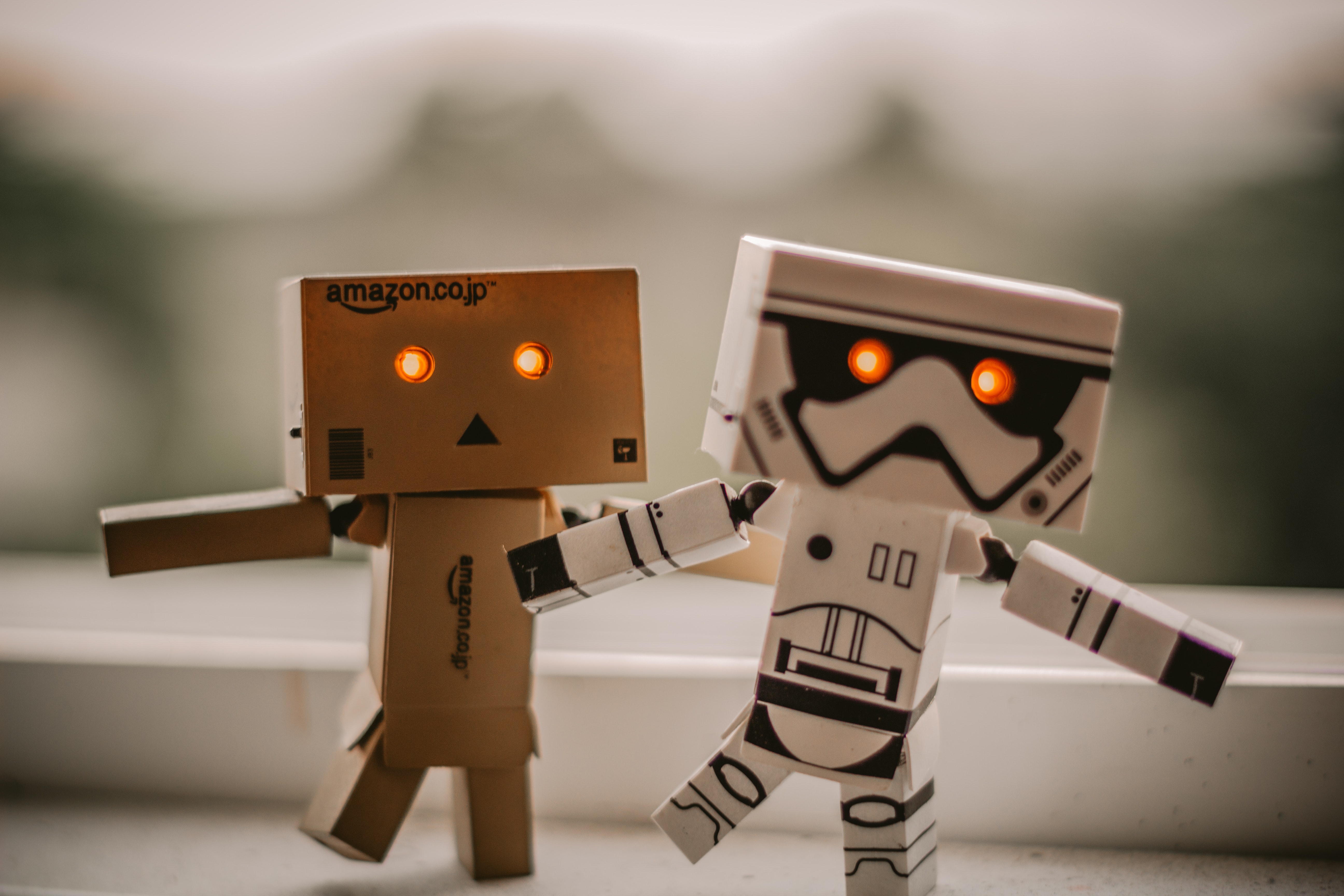Recreating human intelligence in an artificial way has long been the dream of scientists and film directors alike. Cinematic creations like Bladerunner’s replicants and Star Wars’ C3-PO are the human reproductions that spring to mind when we think about Artificial Intelligence (AI). But the reality is closer to computer-based AI like The Terminator’s Skynet.
In this blog, we take a look at how these advances in technology are impacting marketing and which companies are using AI to their advantage.
The Elusiveness of Understanding Individuals
As a marketer, you want to be as relevant to your customers as possible in order to market to them as effectively as possible. To do this you need to make sense of the human condition. Needless to say, that’s a tall order.
Demographics. Psychographics. Geographics. They’ve all been used to try and quantify difference and place people into neat little boxes. While this works to an extent, it’s not possible for this approach to capture and react to quirks, outliers or the complex contradictions that make up human nature.
This has made it impossible to accurately understand each individual’s tastes and preferences in order to be able to market to them effectively.
Understanding that Mary – a top earner who votes conservative, enjoys baking cookies and lives behind a white picket fence – also loves death metal is possible. By delving into the data and joining the dots, this level of understanding is possible on a small scale. But what marketers really want is individual understanding, and the capability to be relevant, at scale.
Which is where Artificial Intelligence (AI) and Machine Learning (ML) come in.
One Small Step in Computing, A Giant Leap for Marketers
Teaching computers to learn sounds like a single, perhaps simple step. But it has massive implications for the capability of technology.
Even within the past few years, we’ve built computers that are capable of effectively learning on their own. For marketers, this means machines can learn about an individual without being told what to do by a human operator.
This makes it possible to understand individuals’ buying preferences and for machines to follow this through to the logical conclusion: to recommend products that person would like to buy.
Although Amazon have so far been the masters at this, Google has also been at the forefront of developing and using AI and ML.
Take Google Photos. This software learns your friends’ faces so it can suggest their name making it easier for you to tag them. And with artificial personal assistants like Google’s Alexa, the technology is advancing at pace.
Google believes that “we’ll soon be able to tailor campaigns to consumer intent in the moment. It will be like having a million planners in your pocket.”
What does this mean in practice? Here are some examples of AI and ML that are being used right now.
Simple AI – Been There, Used That
If you thought you’d never used AI, think again. Recent research from HubSpot found that 63% of respondents to their AI survey were already using the technology but hadn’t realised.
That’s because at the most simple end of the AI spectrum, chatbots and voice-recognition software like Siri, Cortana or Alexa are in fact artificial intelligence. Intelligent because they have learned to respond to our voice, each with its own signature to be interpreted and responded to.
But AI extends well beyond voice recognition and response.
Deep Data Interpreted and Written For You
As big data continues to be a hot topic, AI and enormous information sets are beginning to collide.
Automated Insights is a piece of software that can interrogate data and produce clear, well-written reports without any human intervention. Examples include financial and sports reporting where structured facts and figures need to be conveyed clearly.
But the technology can also be used to optimise internal reporting which could take one job off your plate. While the technology’s not quite there to create genuinely great content across a range of topics, it’s a possibility for the future.
Instant Analytics With Geographically Suitable Results
With over 7,000 online guest reviews, hotel chain The Dorchester Collection decided to pan for gold. Instead of manually analysing the reviews they used a machine called Metis to do it for them.
It created a report, virtually instantaneously, which showed that customers wanted a better breakfast offering. But it didn’t stop there. The data was segmented by location enabling the chain to expand menus and create promotions on a personalised basis by adapting the offering in line with customer feedback by site.
What Would You Recommend on the Menu Today?
Encouraging customers to buy more is of course a marketing mainstay. But get your predictions wrong and recommend the incorrect item and you’ll end up with egg on your face and potentially the loss of a customer’s loyalty.
One company that’s using the power of ML to get this right is Booking.com. Using recent searches and bookings, the travel website is providing bespoke recommendations for customers. Instead of recommending family-friendly holidays to people in their 80s, the system accurately assesses a deluge of data accurately analysing which holidays would appeal to its customers.
Not only does this increase upsells and sales but it boosts customer loyalty as booking is made simple.
Underpinned by technology that combines machine learning using structured data and predictive analytics, like Salesforce’s Einstein, this is some of the more advanced marketing AI technology out there at the moment.
Dr Watson, I Presume?
The most advanced AI is that which can be used in multiple settings, like IBM’s Watson. It has so much computing power that it can predict or figure out almost any question (which makes you wonder why it wasn’t called Holmes).
It’s machine learning but applied to unstructured data and predictive analytics making it highly adaptable. In fact, the technology is used to guide medical decision making amongst a wide range of other applications. Including retail.
One retailer using this technology is The North Face. In a move towards what they’re calling ‘cognitive retail’, The North Face replaces traditional sales assistants with online ones asking customers questions about what they’re looking for.
For example, by using it’s voice recognition technology to ask ‘when and where will you use this jacket?’ and ‘what activity will you be doing?’, Watson will find the most appropriate jacket for the customer.
We’ve only really begun to scratch the surface of artificial intelligence. While many of these examples seem novel now, in twenty years time they’ll probably seem about as innovative as sliced bread. Which makes this an exciting time and one full of opportunity for marketers.


.jpg)


.jpg)
.jpg)





